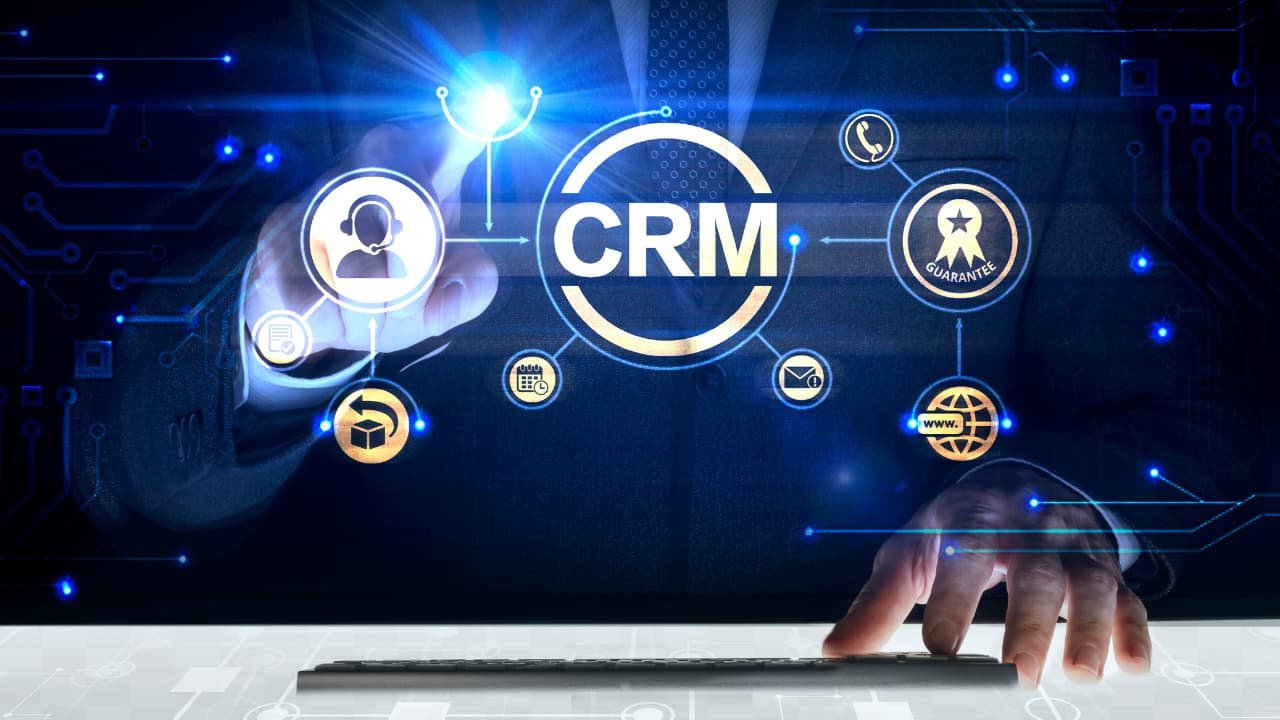Best CRM for Sales Managers: Why Do You Need it?

In this post, you will find the top and best CRM for sales managers.
In customer relationship management, the role of a Sales Manager is crucial. To thrive in today’s competitive business environment, Sales Managers need powerful tools to streamline processes, enhance collaboration, and drive sales growth. CRM programs are good for salespeople in the management team.
Implementing a CRM for Sales Managers streamlines operations, enhances communication, and boosts efficiency in driving sales success.
One such indispensable tool is a Customer Relationship Management (CRM) system. In this blog post, we will delve into the reasons why we need CRM for sales managers and explore some of the best CRM options available.
What Is Sales Management?
Sales Management refers to the planning, direction, and control of activities related to the sales of a product or service within an organization. It involves overseeing the sales team, setting targets, implementing strategies, and ensuring that the team meets or exceeds sales goals. Effective sales management is essential for driving revenue, building strong customer relationships, and sustaining business growth.
Sales Management Process:
Setting Objectives:
- Define clear and achievable sales objectives aligned with overall business goals.
Organizing:
- Structure the sales team, assign roles and responsibilities, and establish effective communication channels.
Recruitment and Training:
- Recruit, train, and develop a skilled sales force capable of meeting targets.
Motivation:
- Implement these strategies to motivate and incentivize the sales team to boost performance.
Sales Planning:
- Develop comprehensive sales plans, including target markets, customer segments, and sales strategies.
Monitoring and Controlling:
- Continuously monitor sales performance, analyze results, and implement corrective measures as needed.
Setting Targets:
- Establish realistic and challenging sales targets for individuals and the team.
Customer Relationship Management (CRM):
- Implement CRM systems to manage customer interactions, track leads, and enhance customer relationships.
Sales Forecasting:
- Use data and analytics to predict future sales trends and make informed business decisions.
Market Research:
- Stay updated on market trends, competitor activities, and customer preferences to adapt sales strategies accordingly.
Performance Evaluation:
- Regularly assess the performance of sales team members and provide constructive feedback for improvement.
Benefits of CRM for Sales Managers
Implementing a Customer Relationship Management (CRM) system provides numerous benefits for Sales Managers. Here are the key advantages:
- Centralized Data Management:
- Benefit: All customer information, interactions, and sales activities are centralized, ensuring easy access to accurate and up-to-date data for informed decision-making.
- 65% of sales reps who have adopted mobile CRM have achieved their sales quotas while only 22% of reps using non-mobile CRM have reached the same targets. (Innoppl Technologies)
- Improved Communication:
- Benefit: CRMs facilitate seamless communication and collaboration among sales teams, leading to enhanced coordination and increased efficiency.
- Sales Process Optimization:
- Benefit: Streamlines sales processes, identifies bottlenecks, and provides insights for optimizing workflows, leading to increased efficiency and faster deal closures.
- 75% of sales managers say that using a CRM helps to drive and increase sales. (Hubspot)
- Customer Segmentation:
- Benefit: Enables effective customer segmentation, allowing Sales Managers to tailor marketing and sales strategies to specific customer groups for better targeting.
- Sales Forecasting:
- Benefit: Provides analytics and insights into sales trends, helping Sales Managers set realistic targets, make informed decisions, and accurately forecast sales.
- Customer Retention:
- Benefit: CRM systems aid in building and maintaining strong customer relationships by tracking interactions, preferences, and feedback, contributing to effective retention strategies.
- Real-Time Performance Tracking:
- Benefit: Allows Sales Managers to monitor individual and team performance in real-time, enabling quick adjustments and interventions when needed.
- Time and Resource Efficiency:
- Benefit: Automates repetitive tasks, saving time and allowing sales teams to focus on high-value activities, leading to increased productivity.
- Strategic Decision-Making:
- Benefit: Provides data-driven insights for strategic decision-making, allowing Sales Managers to make informed choices that align with overall business goals.
Best CRM for Sales Managers
Selecting the best CRM (Customer Relationship Management) system for sales managers depends on various factors, including the specific needs of your organization, budget constraints, and scalability requirements.
Here are some of the top CRM for sales managers:
Salesforce:
- Key Features:
- Highly customizable and scalable.
- Comprehensive suite for sales, marketing, and customer service.
- Extensive third-party integrations.
- Why Sales Managers Choose Salesforce:
- Offers a complete and flexible solution suitable for businesses of all sizes.
- Provides advanced analytics and reporting for data-driven decision-making.
- Strong community support and a vast ecosystem.
HubSpot CRM:
- Key Features:
- User-friendly interface.
- Integration with HubSpot’s marketing and sales tools.
- Powerful automation capabilities.
- Why Sales Managers Choose Hubspot CRM:
- Seamless integration with other HubSpot tools for an all-in-one solution.
- Free version available with essential features.
- Scalable as your business grows.
Zoho CRM:
- Zoho CRM Key Features:
- Affordable pricing.
- A comprehensive set of sales and marketing tools.
- AI-powered automation and analytics.
- Why Sales Managers Choose zoho CRM:
- Suitable for small to medium-sized businesses.
- User-friendly interface with customization options.
- Extensive app marketplace for additional functionalities.
Microsoft Dynamics 365:
- Key Features:
- Integrate seamlessly with Microsoft Office and other tools.
- AI-driven insights for sales and customer service.
- Scalable for enterprise-level businesses.
- Why Sales Managers Choose Microsoft Dynamics 365:
- Leverages Microsoft’s ecosystem for unified productivity.
- Comprehensive suite covering various business functions.
- Cloud-based solutions for flexibility and accessibility.
Pipedrive:
- Key Features:
- Visual pipeline management.
- User-friendly and easy to navigate.
- Focus on sales process optimization.
- Why Sales Managers Choose Pipedrive:
- Ideal for small to medium-sized businesses.
- Simplifies lead tracking and deal management.
- Customizable to fit specific sales processes.
Bitrix24:
- Key Features:
- An all-in-one collaboration platform.
- CRM, project management, and communication tools.
- Available in cloud and on-premise versions.
- Why Sales Managers Choose Bitrix24:
- Comprehensive solutions for businesses looking for more than just CRM.
- Affordable pricing options.
- Integration of multiple business functions on one platform.
When selecting a CRM, it’s crucial to consider factors such as the size of your business, integration capabilities, ease of use, and the specific features that align with your sales processes. Additionally, take advantage of free trials and demos to ensure that your chosen CRM meets your organization’s unique requirements.
Why Do You Need a CRM for Sales Managers?
Centralized Data Management:
- Reason: Managing customer data scattered across various platforms can lead to confusion and inefficiency.
- Benefits: A CRM centralizes all customer information, interactions, and sales activities in one accessible location. This ensures that Sales Managers and their teams have a unified view of customer data, leading to more informed decision-making.
Improved Communication:
- Reason: Effective communication is key to successful sales team collaboration.
- Benefits: CRM systems facilitate seamless communication by providing a platform where team members can share insights, updates, and relevant information. This enhances coordination and ensures everyone is aligned toward common goals.
Sales Process Optimization:
- Reason: Streamlining the sales process is essential for maximizing efficiency and closing deals.
- Benefits: CRMs help Sales Managers optimize sales workflows, identify bottlenecks, and implement data-driven strategies. With analytics and reporting features, Sales Managers can continuously refine their processes for better performance.
Customer Segmentation:
- Reason: Not all customers are the same, and targeted approaches yield better results.
- Benefits: CRMs for Sales Managers to segment customers based on various criteria. This allows for personalized marketing and sales strategies tailored to specific customer needs, increasing the chances of conversion.
Sales Forecasting:
- Reason: Accurate sales forecasting is essential for effective resource planning.
- Benefits: CRM analytics provides Sales Managers with insights into sales trends, helping them set realistic targets and make informed decisions. This enhances the accuracy of sales forecasts and contributes to better overall planning.
Customer Retention:
- Reason: Retaining existing customers is as crucial as acquiring new ones.
- Benefits: CRM systems aid in building and maintaining strong customer relationships by tracking interactions, preferences, and feedback. Sales Managers can implement targeted retention strategies, identify upselling opportunities, and enhance customer satisfaction.
Conclusion
In summary, selecting the best CRM for Sales Managers is pivotal for optimizing sales processes and fostering customer relationships. A robust CRM system centralizes data, enhances communication, streamlines sales workflows, enables targeted marketing efforts, and provides valuable insights for informed decision-making.
Empower your sales team’s potential with a tailored CRM for Sales Managers, fostering precision in customer relationship management and optimizing sales strategies.
The right CRM for Sales Managers to navigate challenges, drive team efficiency, and ultimately achieve sustained business growth.
Why do we need CRM for sales managers?
Sales Managers benefit from a CRM (Customer Relationship Management) system for several reasons. It centralizes customer data, streamlines communication, optimizes sales processes, enables customer segmentation, facilitates sales forecasting, and enhances customer retention strategies.
How does a CRM improve communication within sales teams?
CRMs facilitate seamless communication by providing a centralized platform for sales teams. It allows team members to share insights, updates, and relevant information, fostering collaboration and ensuring everyone is aligned toward common sales objectives.


